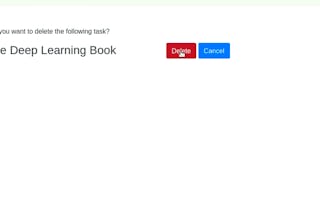Description: This course provides a comprehensive introduction to building dynamic web applications using Python and the Flask framework. You'll learn how to handle user interactions, work with databases, develop APIs, and deploy secure and reliable web applications.

Web Development with Python

Web Development with Python
This course is part of Microsoft Python Development Professional Certificate

Instructor: Microsoft
6,569 already enrolled
Included with
19 reviews
Recommended experience
Skills you'll gain
- JavaScript Frameworks
- Collaboration
- Relational Databases
- Python Programming
- HTML and CSS
- Front-End Web Development
- Cloud Deployment
- Vue.JS
- Web Applications
- Back-End Web Development
- Web Development
- Databases
- Full-Stack Web Development
- SQL
- Selenium (Software)
- Application Programming Interface (API)
- Object-Relational Mapping
- Restful API
- Application Security
- Flask (Web Framework)
Details to know

Add to your LinkedIn profile
28 assignments
See how employees at top companies are mastering in-demand skills

Build your Design and Product expertise
- Learn new concepts from industry experts
- Gain a foundational understanding of a subject or tool
- Develop job-relevant skills with hands-on projects
- Earn a shareable career certificate from Microsoft

There are 6 modules in this course
This module provides a foundational understanding of web development concepts, introducing learners to the role of Python in building web applications. It begins by exploring the evolution of the web and Python's unique strengths in this domain, including its versatility and extensive libraries. Learners will then delve into the core technologies of the web - HTML, CSS, and JavaScript - gaining a high-level understanding of their syntax and purpose. The module also covers essential web design principles, emphasizing user-centric approaches for creating effective and engaging online experiences. Finally, learners are introduced to front-end frameworks, exploring their benefits and comparing popular options like React, Angular, and Vue.js. Through practical demos and activities, learners will gain hands-on experience with Vue.js, setting up their first project and experimenting with component-based development. This module sets the stage for future learning by providing a comprehensive overview of the web development landscape and equipping learners with essential knowledge and skills.
What's included
12 videos8 readings5 assignments1 discussion prompt
This module delves into the practical application of Python for web development through the exploration of Flask, a popular Python web framework. It starts by introducing Flask and Django, comparing their strengths and weaknesses to help learners understand their respective use cases. Learners then dive deep into Flask, starting with setting up their development environment and creating a basic Flask application. The module emphasizes core concepts such as routing and rendering, explaining how to handle different HTTP requests and dynamically generate web pages using templates. Through hands-on demos and activities, learners gain practical experience in building a simple web application using Flask, incorporating essential features like data handling, file management, and decorators. This module provides learners with a solid foundation in Flask, equipping them with the skills to develop dynamic and interactive web applications.
What's included
4 videos5 readings5 assignments
This module focuses on the crucial role of databases in web development and how to integrate them effectively with Python applications. Learners begin by exploring fundamental database concepts, including relational databases, SQL, and the importance of database schemas. They gain practical experience with SQL syntax through interactive exercises, focusing on essential commands for data manipulation. The module then introduces Object-Relational Mappers (ORMs) and their role in simplifying database interactions within Python. Learners delve into popular ORM libraries like Flask-SQLAlchemy, learning how to define models, establish relationships between tables, and perform CRUD operations. Through hands-on demos and projects, learners gain practical experience in setting up a database, designing schemas, and interacting with data using ORMs. This module bridges the gap between database theory and practical implementation, equipping learners with essential skills for building data-driven web applications.
What's included
13 videos9 readings6 assignments1 programming assignment
This module introduces learners to the world of Application Programming Interfaces (APIs), focusing on the widely adopted RESTful architecture. It begins by explaining the core concepts of REST, including resources, endpoints, HTTP methods, and status codes. Learners explore how APIs facilitate communication between different software systems, enabling data exchange and integration. The module then explores the practical aspects of API development using Flask-RESTful, a Python framework for building RESTful APIs. Through live coding demonstrations and hands-on activities, learners gain experience in setting up API endpoints, handling requests and responses, and consuming external APIs. The module also covers security considerations, emphasizing the importance of authentication and authorization mechanisms to protect API access. By the end of this module, learners will have a solid understanding of RESTful APIs and the ability to create and integrate APIs into their web applications.
What's included
5 videos2 readings5 assignments
This module focuses on the crucial final steps of web development: deploying applications, implementing security measures, and understanding ongoing maintenance. Learners begin by exploring common web security threats and vulnerabilities, such as SQL injection and cross-site scripting (XSS), and learn how to mitigate these risks through secure coding practices. The module then delves into deployment strategies, comparing different cloud platforms like AWS and Heroku, and differentiating between PaaS and IaaS models. Learners gain practical experience by deploying a Flask application to a chosen platform, implementing basic security measures to protect their application from common attacks. This module provides learners with the essential skills and knowledge to launch secure and reliable web applications, ensuring their ongoing maintenance and protection.
What's included
6 videos2 readings4 assignments
This module emphasizes the critical role of testing in web development and introduces learners to essential testing techniques and tools. It begins by explaining the importance of testing in ensuring the quality, functionality, and user experience of web applications. Learners are then introduced to practical testing methods, including unit testing with Flask and automated testing with Selenium. Through demonstrations and hands-on activities, learners gain experience in writing and running tests, simulating user interactions, and identifying potential issues. The module also covers the ongoing maintenance and monitoring of web applications, highlighting the importance of keeping applications up-to-date, secure, and performing optimally. By the end of this module, learners will understand the value of testing throughout the development lifecycle and possess the skills to ensure their web applications are robust, reliable, and user-friendly.
What's included
7 videos5 readings3 assignments1 programming assignment
Earn a career certificate
Add this credential to your LinkedIn profile, resume, or CV. Share it on social media and in your performance review.
Explore more from Design and Product
Why people choose Coursera for their career

Felipe M.

Jennifer J.

Larry W.

Chaitanya A.

Open new doors with Coursera Plus
Unlimited access to 10,000+ world-class courses, hands-on projects, and job-ready certificate programs - all included in your subscription
Advance your career with an online degree
Earn a degree from world-class universities - 100% online
Join over 3,400 global companies that choose Coursera for Business
Upskill your employees to excel in the digital economy
Frequently asked questions
To access the course materials, assignments and to earn a Certificate, you will need to purchase the Certificate experience when you enroll in a course. You can try a Free Trial instead, or apply for Financial Aid. The course may offer 'Full Course, No Certificate' instead. This option lets you see all course materials, submit required assessments, and get a final grade. This also means that you will not be able to purchase a Certificate experience.
When you enroll in the course, you get access to all of the courses in the Certificate, and you earn a certificate when you complete the work. Your electronic Certificate will be added to your Accomplishments page - from there, you can print your Certificate or add it to your LinkedIn profile.
More questions
Financial aid available,





